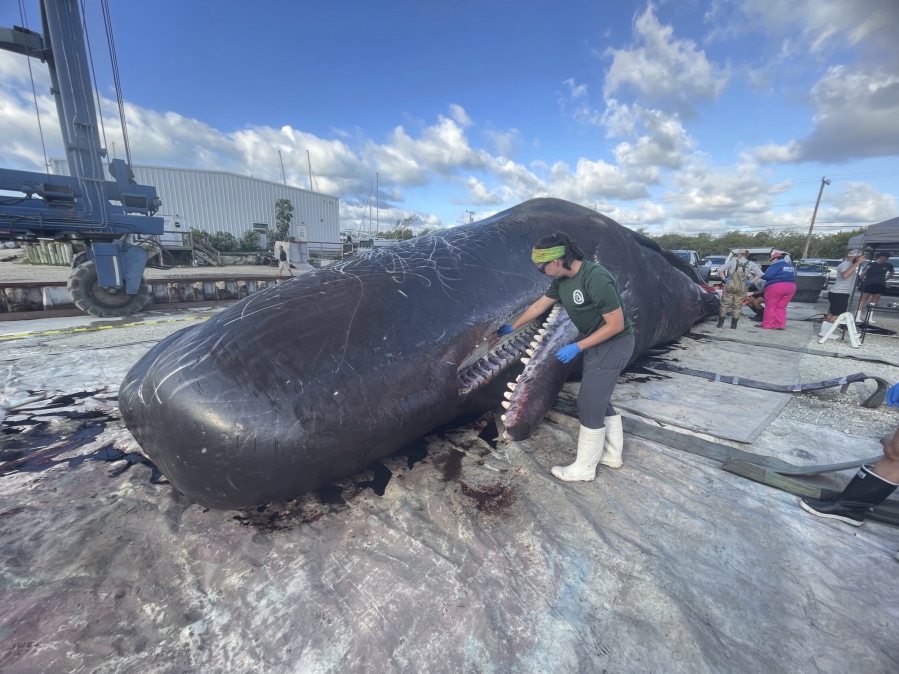Biologists conducting an necropsy on a sperm whale that beached itself in the shallow waters of the Gulf of Mexico in the Florida Keys said they found man-made materials in the mammal’s stomach that likely contributed to its death.
The adult male was one of two sperm whales that died in Florida Keys waters within seven days. The other was a newborn calf that became separated from its mother off Key Largo on May 4.
Both deaths are under investigation, but state and federal scientists say they don’t initially appear to be related.
Carlisle Jones, spokeswoman with the Florida Fish and Wildlife Conservation Commission, said the whale that died Tuesday — a 47-foot adult male — “had a mass of intertwined line, net pieces and a plastic bag type of material in its stomach.”
The items were found Wednesday by the state agency and federal biologists conducting the necropsy, an animal autopsy, on the large mammal on the docks of Robbie’s Marina in Stock Island near Key West. A boat towing company took the whale there the day before from where it was found off Mud Key, an island about 15 miles northeast of Key West.
“The debris likely did not allow the whale to eat properly, leading to its emaciated condition and stranding,” Jones said Thursday.
Scientists, however, still need to conduct more diagnostic analysis on the tissue samples collected from the whale during the necropsy to confirm the exact cause of stranding and death, Jones said.
“The material collected from its stomach will also be sent out to determine its type and where it may have originated from,” Jones said.
Sperm whales are listed as “endangered” under the Endangered Species Act and “depleted” under the Marine Mammal Protection Act. They are the largest of the toothed whales and are found in oceans throughout the world, including in the Gulf of Mexico and Atlantic Ocean in South Florida.
They mostly live and hunt in very deep water, however, so it’s rare to see them near shore in the Keys where the water is typically shallow. And when they are spotted there, that’s usually a sign they are sick or in distress.
The calf that died last week still had an open umbilical cord when it was found on a small barrier island off John Pennekamp Coral Reef State Park in Key Largo in the Upper Keys, said Blair Mase, southeast regional marine mammal stranding coordinator for the National Oceanic and Atmospheric Administration’s National Fisheries Service.
Necropsy results are still pending in the 9½-foot-long female whale’s death, but Mase said the fact she was separated from her mother so soon after birth was likely a significant contributing factor.



